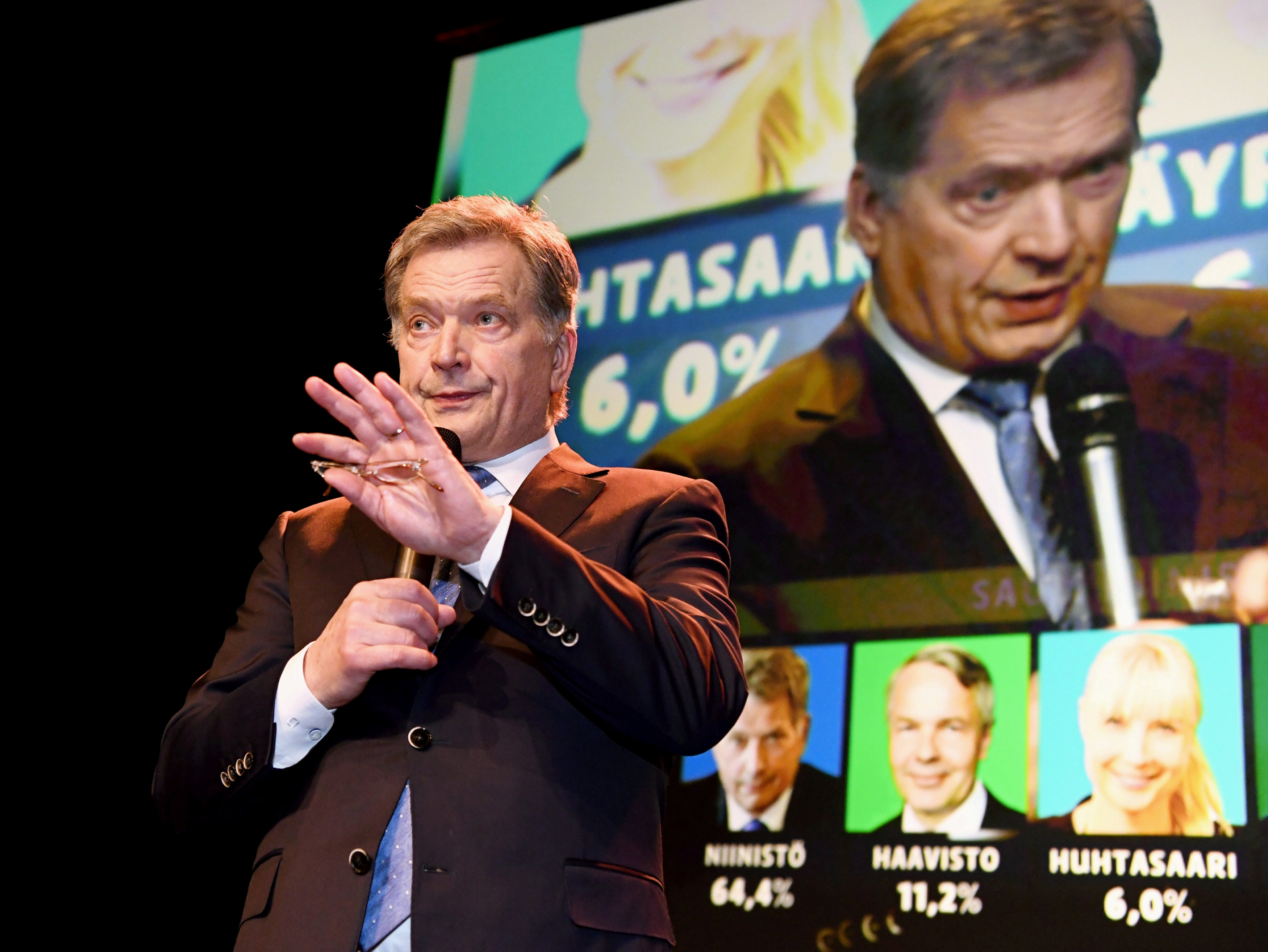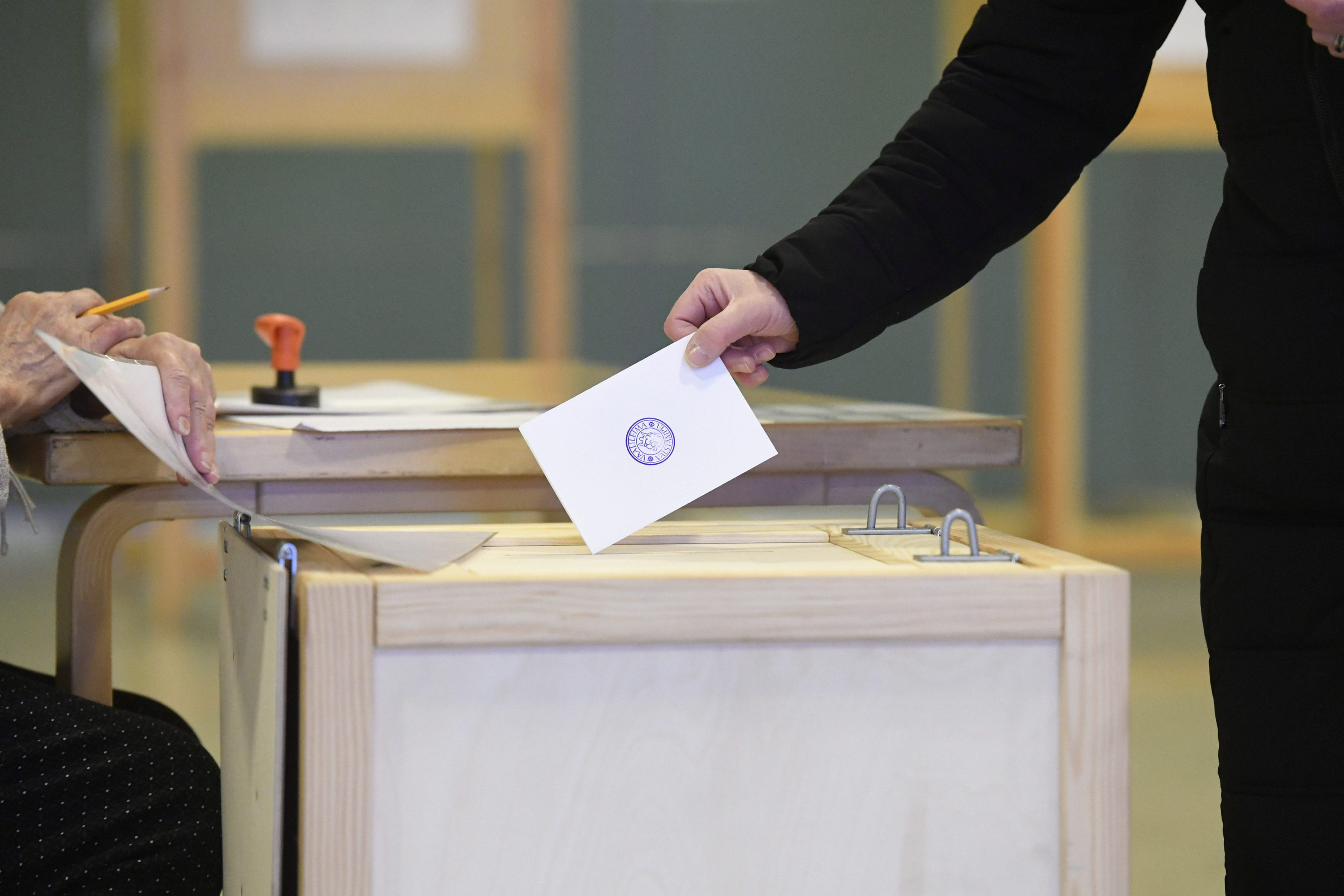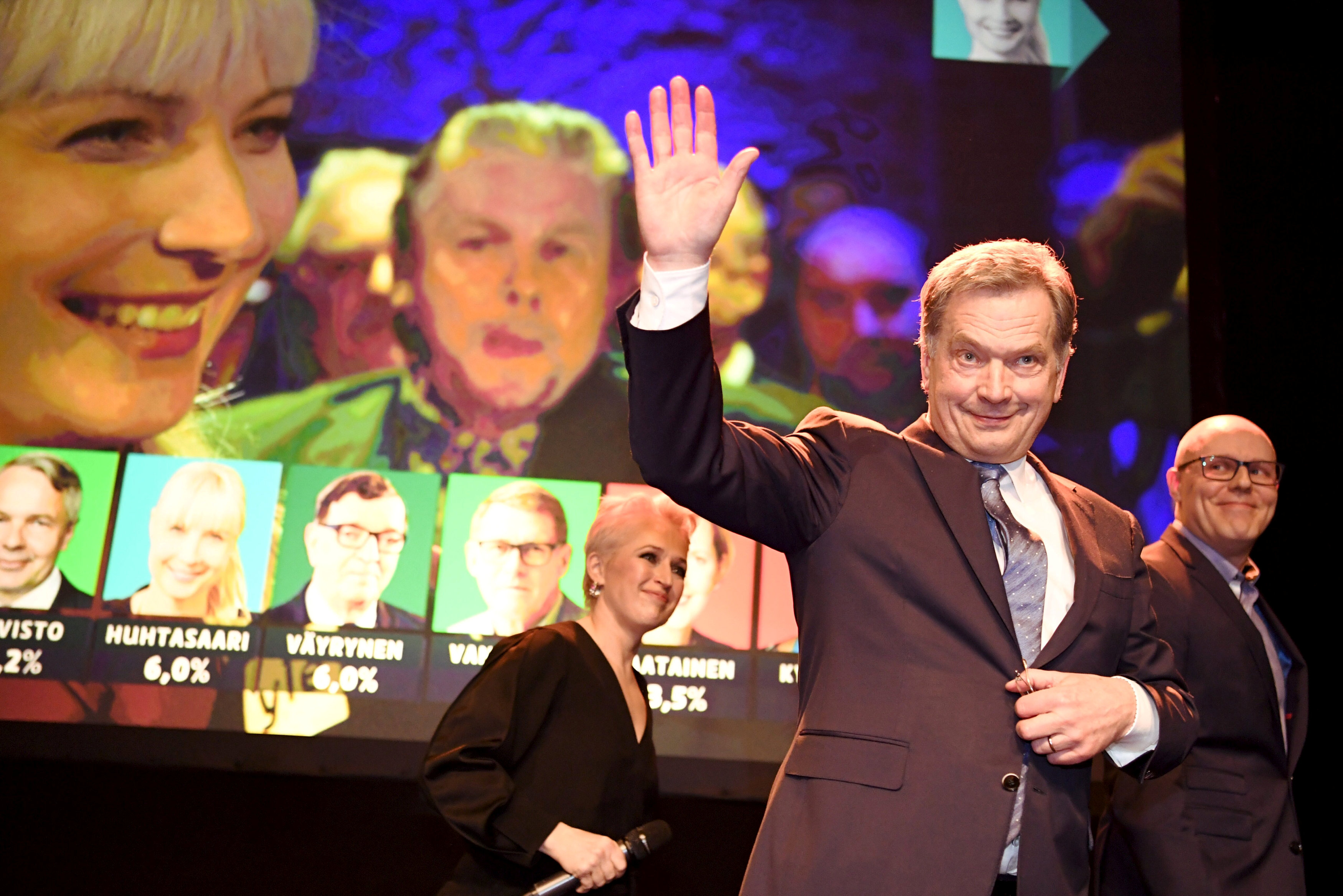Finns, worried by Russia, hand cautious president huge election win
Finland's moderate President Sauli Niinisto cruised to a rare first round election win on Sunday as his delicate balancing of ties with neighbor Russia and the U.S.-led NATO military alliance resonated with voters.

HELSINKI — Finland’s moderate President Sauli Niinisto cruised to a rare first round election win on Sunday as his delicate balancing of ties with neighbor Russia and the U.S.-led NATO military alliance resonated with voters.
The 69-year-old Niinisto, known for cultivating good relations with his Russian counterpart Vladimir Putin, won his second six-year term with an overwhelming 62.7 percent of the vote. His closest rival, Pekka Haavisto of the Greens of Finland, secured just 12.4 percent.
“I am very surprised at this kind of support. I must think hard how to be worthy of it,” Niinisto told reporters.
“I have no intention of making changes just for the sake of making changes. We will follow very closely what is happening outside of Finland, globally, and if needed, then we will surely react.”
Pro-EU Niinisto became the first candidate to win a first round victory since the electoral system was changed to a direct popular vote in 1994.
Eurosceptic politicians, Laura Huhtasaari from the nationalist Finns Party and independent Paavo Vayrynen, won 6.9 percent and 6.2 percent of votes, respectively. Turnout was 69.9 percent.
During his first term, Niinisto was instrumental in maintaining relations with Moscow, despite the country backing western economic sanctions against Russia over its 2014 annexation of Crimea from Ukraine.
Finland, which shares an 833-mile (1,340 km) border and a difficult history with Russia, has also developed closer ties with NATO but stopped short of full membership in line with a tradition of avoiding confrontation with Russia.
The president is in charge of foreign and defense policy together with the government, but otherwise the post has become largely ceremonial in the past few decades.
Niinisto has appeared as a low-profile middle-man between East and West, in sharp contrast to his Baltic counterparts who regularly speak out against Moscow.
He was the first Western leader to meet Putin following the annexation of the Ukrainian peninsula, and he has also actively pushed for an air safety agreement in the Baltic region.
‘FATHER OF THE NATION’
Niinisto hopes for the EU to strengthen its defense cooperation, and declines to lock in a stance on Finland’s future NATO membership.
“I think there is no reason to seek a (NATO) membership as long as circumstances are as they are now,” Niinisto said on Sunday. “But if there are crucial changes in the environment, then we might be in a different situation.”
Niinisto originally belonged to the co-ruling, center-right National Coalition Party but campaigned this time around as an independent.
“When ties between European Union and Russia are tense, people are satisfied that Niinisto has been able to maintain pragmatic and functional dialogue with Russia,” said Markku Jokisipila, director at the Centre for Parliamentary Studies of the University of Turku.
Apart from his long service in politics, Niinisto also taps into sympathy from many Finns because of a series of personal dramas.
A lawyer by training, he was finance minister in the 1990s, becoming known for his government’s austerity measures following Finland’s recession, as well as the decision to join the euro area.
He lost his first wife in a car accident in 1995. He was in Thailand during the deadly 2004 Indian Ocean earthquake and tsunami and survived by climbing up an electricity pole with his son.
He expects a baby with his wife Jenni Haukio, 40.
“His habits reflect his experience and ordeal, and that combined with his very moderate policy statements makes him a kind of ‘father of a nation’ figure,” said Juho Rahkonen, Research Manager at pollster Taloustutkimus.
The result underlined how presidential candidates are to a large extent given priority over their parties, analysts said.
Matti Vanhanen, a candidate from Prime Minister Juha Sipila’s Centre Party, received only 4.1 percent of votes, while the biggest opposition party Social Democrats’ candidate, Tuula Haatainen, won just 3.3 percent.
While around 20 percent of Finns back the idea of joining NATO, the only pro-NATO candidate, Nils Torvalds from the Swedish People’s Party, won only 1.5 percent of votes.



